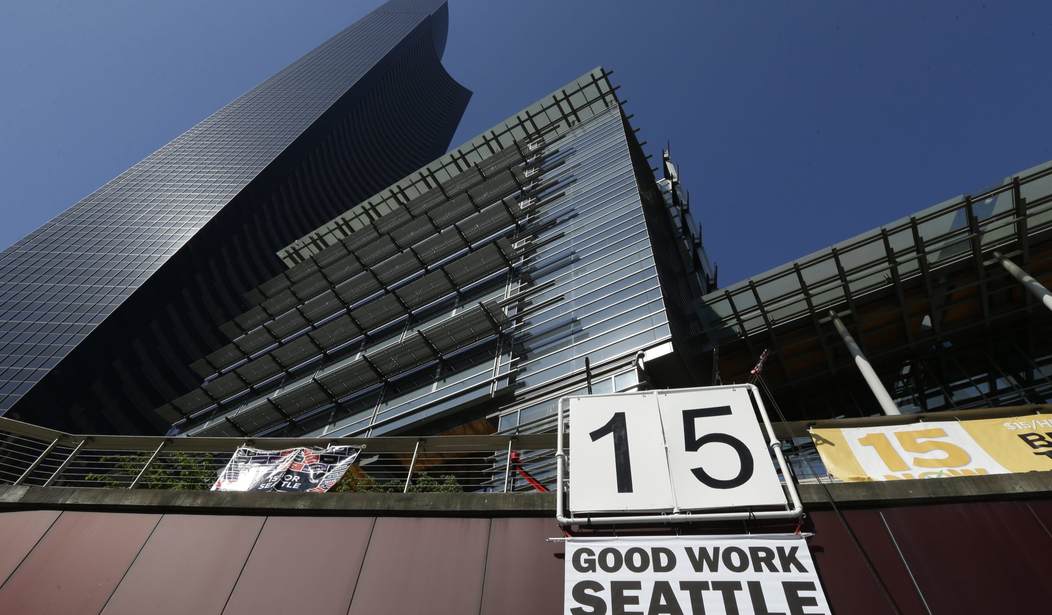For many mentally disabled people, working is everything. For people who are desperate for a taste of independence, a low-wage job is something to celebrate. Unfortunately, in Seattle, there’s a good chance the mentally disabled won’t be able to find employment anymore.
Last week, Seattle Mayor Ed Murray announced a proposal to eliminate the city’s use of special certificates that allow companies to pay wages below the city’s $15 minimum wage. A city council vote is expected before the end of this year.
Who is affected by these certificates? Murray answers: “The point of our historic $15 minimum wage law was to build universal equality in Seattle. A loophole allowing subminimum wages for disabled workers has undermined that goal.”
In the name of social justice, Seattle plans to make workers with disabilities unemployable. Although many will be forced out of work they voluntarily engaged in, workers with disabilities should apparently feel good about how “equal” they will be to the larger public. Proponents of eliminating wage certificates believe they are doing a social good by forcing up the wages of persons with disabilities, but the result will be the opposite: the aggregate wages that persons with disabilities earn will decline as businesses are forced to lay off these workers or cut their hours.
Let’s be clear for a moment — many disabled workers will be unaffected. Physical disabilities may require accommodations, but many of those workers are making well above minimum wage as it is. Those that aren’t do have the potential to learn valuable skills that would make them employable otherwise.
No, this pretty much impacts only the mentally disabled.
At $15 per hour, employers are going to require more from their workers, especially with it being such a huge jump in wages. They’re going to expect people to take on more tasks than those normally associated with minimum wage work.
“But the Americans With Disabilities Act says … “
Doesn’t matter. If the work requires ability that mentally disabled workers can’t provide, the ADA doesn’t mean squat. The ADA calls for “reasonable accommodations” for disabled workers, but if the job requires something that the worker can’t do and there’s no accommodation possible, the ADA allows the person to not be hired.
Seattle thinks it’s doing wonderful things for all workers by refusing to permit employers to dip below the mandated minimum wage. But now the mentally disabled who only want to work, who only want a sense of independence, are out of luck.









Join the conversation as a VIP Member